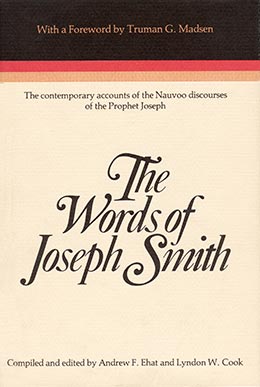9 December 1843 (Saturday). Corner of Main and Water Streets
[1] Their was a meeting of the Citizens in general & the ordinance passed yesterday [2] was read before the multitude & speaches made by several persons the last of which was President Joseph Smith who gave an interesting address to the assembly spoke of our persecution, the manner that our rights & liberties had been trampled upon & that it was time it was stopped, they all sanctioned the speach of the general & were dismissed in good order & returnd to their homes.
Nauvoo Neighbor 1 (20 December 1843)
[After remarks by John Taylor] General Joseph Smith briefly addressed the meeting; he dissented entirely from the opinion of the Attorney General [3], and observed that it was stated in the charter that the Legion was a part of the militia of Illinois, and that his commission declared that he (General Smith) was the Lieutenant General of the Nauvoo Legion, and if the militia of the State of Illinois, and as such, it was not only his duty to enforce the city ordinances, but the laws of the State when called on by the Governor. He also stated that he had been informed that the Chief Magistrate of Missouri had it in contemplation to make another requisition on the Governor of Illinois for him, Joseph Smith.
—9 December 1843
Notes
[1] See History of the Church, 6:107-8. Not in Teachings. The source for the entry in History of the Church is the Nauvoo Neighbor. The Wilford Woodruff report is here published for the first time.
[2] The Nauvoo city ordinance referred to is cited in History of the Church, 6:105-6. The ordinance stated, "If any person or persons shall come with process, demand, or requisition, founded upon the aforesaid Missouri difficulties, to arrest said Joseph Smith, he or they so offending shall be subject to be arrested … and if found guilty, sentenced to imprisonment for life … pardoned [only] by the Governor" (History of the Church, 6:105).
[3] Josiah Lamborn (1819-1847) was Attorney General of Illinois 1840-1843. Lamborn gave it as his opinion that the Nauvoo Legion was a creation of the City of Nauvoo, and not part of the regular militia of the state.
